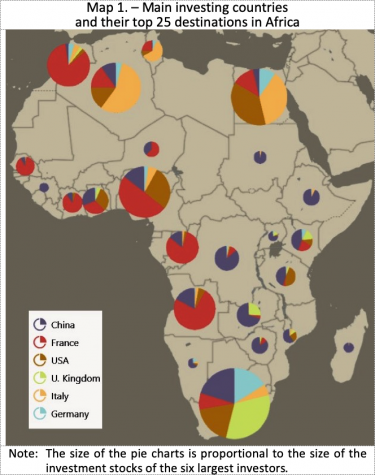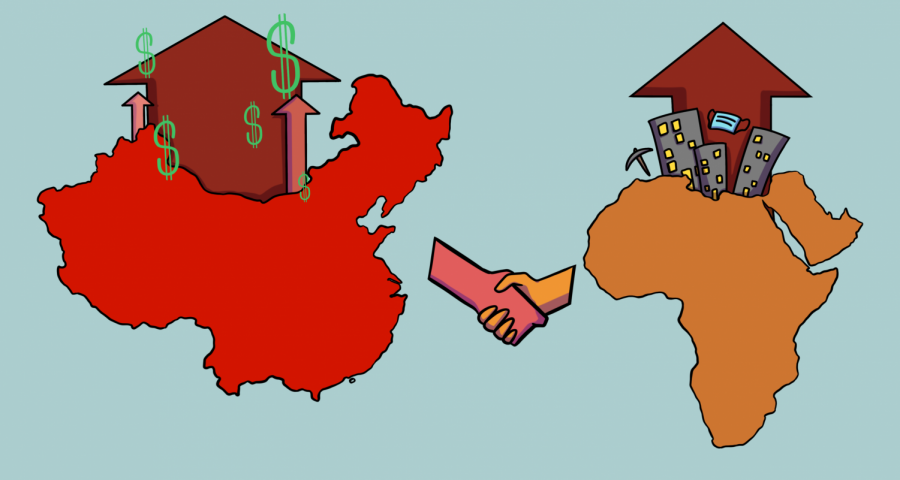China’s Route to Global Influence runs through Africa
African people may be getting the short end of the stick
China is becoming a new world power while the United States and Europe find themselves fighting an uphill battle. The continent of Africa is the key to economic expansion and increased geopolitical influence. China’s growing presence in Africa and other parts of the world has been an important and daunting factor in international politics and economics over the past two decades.
China has found a market long overlooked by the United States — Africa. As of 2019, China is Africa’s largest trade partner with over $200 billion of annual trade investments. There are over 10,000 Chinese-owned businesses and firms with the combined values reaching over 2 trillion dollars. China’s African infrastructure projects are another key factor in the Sino-African relationship. China has a 40% share in African infrastructure, comparable to the US’ minuscule 7%. Europe’s share has even dropped from 44% to just 34% over the past decade. Around one-third of this investment has gone into three countries, Nigeria, Angola, and Ethiopia, and the rest goes into ten countries in South and Central Africa.
China’s ambitious Belt and Road Initiative (BRI), created under President Xi Jinping in 2013, provides China more political and economic power across the world by providing advantageous infrastructure projects to more than 60 countries. China’s BRI is often called the “modern-day Silk Road” due to its massive trade implications. In Africa, China funded a $12 billion coastal railway in Nigeria, an $11 billion megaport in Tanzania, a $4.5 billion railway in Ethiopia, and hundreds of other infrastructure projects across the African continent. There are clear downsides to these projects. The BRI is not an aid program but rather a low-interest loan program. This means that African countries may very well be digging themselves into debt. In fact, it is already happening. In Ethiopia, for example, a railway infrastructure project funded by China cost the country a quarter of its annual budget in 2016. The Jubilee Debt Campaign found that 20% of all debt owed across Africa is to China. The BRI also has not been entirely effective, with several becoming incomplete or stale. The project, as a whole, has not been entirely successful.
But why invest in Africa? These are countries that President Trump called “s***hole countries” in 2018, so what does China see in it? Well, Africa has the second fastest-growing urban population in the world. By 2050, it is expected that Africa’s current population of about 1.1 billion people will double to 2.2 billion, with an urban population of 1.3 billion. The continent’s economy is expected to be worth up to $5 trillion by 2025. There is a large market opportunity, and China has been the most successful nation in tapping into it.

China is politically and economically motivated. A significant portion of Chinese businesses and firms do not necessarily have any relation to the Chinese Communist Party (CCP) and are solely seeking economic gains in a continent with massive potential. Even so, the enterprises are important to the Chinese government. Over one third of Chinese oil is derived from Africa, as well as about 20% of cotton. Other important trade items between China and Africa include manganese, used in steel production, cobalt, and coltan, which is used in electronics. China’s African relations are advantageous both from a political and economic perspective. While the economic implications of working with Africa are favorable to China, political ambitions of asserting themselves on the continent become another objective for China. The benefits of being closely intertwined with a quickly growing market are important on an economic platform and a political platform. China seeks to station itself in a better position on the global stage.
African leaders are often seeking to benefit themselves and their countries when working with China. There are reasons for African politicians to look east for an economic partner, but African citizens are wary. Take Nigeria, the country China has invested the most in. Medical experts were skeptical of having Chinese doctors come as aid during the pandemic, as they felt unnecessary. In an essay written by Dr. Mehari Taddele Maru, a scholar and part-time professor at the Migration Policy Center of the European University Institute, he says, “Africans are well aware of the shortcomings of Chinese assistance and business in Africa… [they] expect China to take some responsibility for some of these shortcomings, but also acknowledge that the weaknesses of African regulatory and enforcement mechanisms, as well as self-serving governments, are the main culprits.” In other words, African citizens become the victims in an exchange, seemingly seeking to benefit them and their countries.
China’s most recent relationship with African states has come in the form of Covid aid. China is giving support across the continent in medical supplies, webinars, medical personnel, debt relief, and a promise to produce and distribute a vaccine continent-wide. The Asian superpower has been in close contact with the African CDC and country leaders in tackling the pandemic. Aid to Africa is also coming from the private sector in China. Jack Ma, a Chinese billionaire and co-founder of the Alibaba technology conglomerate, supporter of Xi Jinping and the CCP, donated millions of various Covid-19 supplies to various African countries since March this year. The pandemic has provided China an opportunity to stake out greater influence on the continent but also for African countries to receive support from a seemingly more stable partner during these times.
But the Covid pandemic may also be seen as a turning point in China’s African outlook. The CCP’s continued investment in Africa may be slowing with countries not interested in getting into debt-inducing projects and pressure on China to forgive debt on tens of billions of already existing projects. Poorly timed investments made by China in the market of raw materials, which have struggled amid the coronavirus pandemic, shortly before the pandemic is also leading to China’s demise on the continent. This could be a sign of things to come, as more private Chinese firms continue to look to Africa for a less-restricted alternative to European and American markets, while the Chinese state is forced into pulling out of Africa.

Darin Eberhardt '25 has been working with the Advocate since 7th grade and joined the Editorial Board in early 2023. Always finding ways to keep his schedule...







